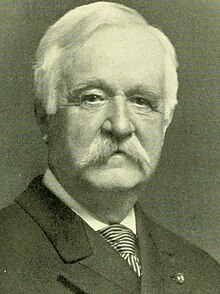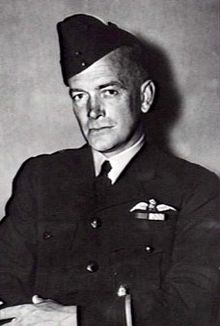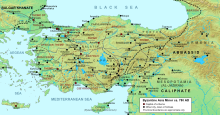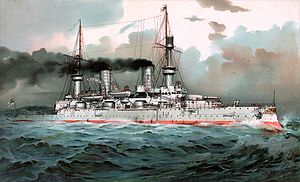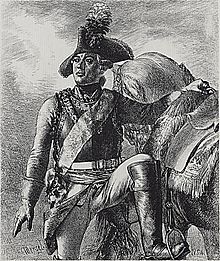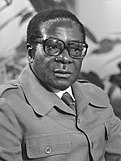Portal:History
The History Portal
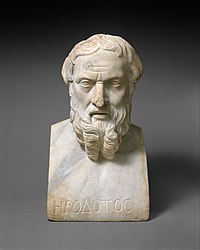
Herodotus (c. 484 BC – c. 425 BC) is often
considered the "father of history"
History (derived from Ancient Greek ἱστορία (historía) 'inquiry; knowledge acquired by investigation') is the systematic study and documentation of the human past.
The period of events before the invention of writing systems is considered prehistory. "History" is an umbrella term comprising past events as well as the memory, discovery, collection, organization, presentation, and interpretation of these events. Historians seek knowledge of the past using historical sources such as written documents, oral accounts, art and material artifacts, and ecological markers. History is incomplete and still has debatable mysteries.
History is an academic discipline which uses a narrative to describe, examine, question, and analyze past events, and investigate their patterns of cause and effect. Historians debate which narrative best explains an event, as well as the significance of different causes and effects. Historians debate the nature of history as an end in itself, and its usefulness in giving perspective on the problems of the present.
Stories common to a particular culture, but not supported by external sources (such as the tales surrounding King Arthur), are usually classified as cultural heritage or legends. History differs from myth in that it is supported by verifiable evidence. However, ancient cultural influences have helped create variant interpretations of the nature of history, which have evolved over the centuries and continue to change today. The modern study of history is wide-ranging, and includes the study of specific regions and certain topical or thematic elements of historical investigation. History is taught as a part of primary and secondary education, and the academic study of history is a major discipline in universities.
Herodotus, a 5th-century BC Greek historian, is often considered the "father of history", as one of the first historians in the Western tradition, though he has been criticized as the "father of lies". Along with his contemporary Thucydides, he helped form the foundations for the modern study of past events and societies. Their works continue to be read today, and the gap between the culture-focused Herodotus and the military-focused Thucydides remains a point of contention or approach in modern historical writing. In East Asia, a state chronicle, the Spring and Autumn Annals, was reputed to date from as early as 722 BC, though only 2nd-century BC texts have survived. (Full article...)
Featured picture
Did you know (auto generated)

- ... that The Hidden Case of Ewan Forbes discusses the history of transgender man Ewan Forbes and his 1968 legal case to inherit his family's baronetcy that was silenced from public records?
- ... that 25 years after her career ended, Jennifer Martz remains second in NCAA Division III history in hitting percentage?
- ... that in 2007, Arthur Gray's £2 Kangaroo and Map stamp sold for a world record price for a single Australian stamp?
- ... that Clement Crisp, a dance critic for the Financial Times from 1956 to 2020, authored or co-authored 17 books on dance and dance history?
- ... that the 1931 Valentine earthquake was the strongest earthquake in recorded history to hit Texas?
- ... that at the time, the Fountain Fire was the third-most destructive wildfire in California's recorded history?
Friedrich Wilhelm Freiherr von Seydlitz (3 February 1721 – 8 November 1773) was a Prussian officer, lieutenant general, and among the greatest of the Prussian cavalry generals. He commanded one of the first Hussar squadrons of Frederick the Great's army and is credited with the development of the Prussian cavalry to its efficient level of performance in the Seven Years' War. His cavalryman father retired and then died while Seydlitz was still young. Subsequently, he was mentored by Margrave Frederick William of Brandenburg-Schwedt. Seydlitz's superb horsemanship and his recklessness combined to make him a stand-out subaltern, and he emerged as a redoubtable Rittmeister (cavalry captain) in the War of Austrian Succession (1740–1748) during the First and Second Silesian wars.
Seydlitz became legendary throughout the Prussian Army both for his leadership and for his reckless courage. During the Seven Years' War, he came into his own as a cavalry general, known for his coup d'œil, his ability to assess at a glance the entire battlefield situation and to understand intuitively what needed to be done: he excelled at converting the King's directives into flexible tactics. At the Battle of Rossbach, his cavalry was instrumental in routing the French and Imperial armies. His cavalry subsequently played an important role in crushing the Habsburg and Imperial left flank at the Battle of Leuthen. Seydlitz was wounded in battle several times. After the Battle of Kunersdorf in August 1759, he semi-retired to recover from his wounds, charged with the protection of the city of Berlin. He was not healthy enough to campaign again until 1761. (Full article...)On this day
- 1775 – American Revolutionary War: Colonists Paul Revere and William Dawes, later joined by Samuel Prescott, began a midnight ride to warn residents of Lexington and Concord, Massachusetts, about the impending arrival of British troops.
- 1938 – Superman, created by Jerry Siegel and Joe Shuster of DC Comics, made his debut in Action Comics #1, the first true superhero comic book.
- 1946 – The final session of the League of Nations concluded in Geneva, with delegates agreeing to transfer much of its assets to the United Nations.
- 1980 – Robert Mugabe (pictured) became the first prime minister of Zimbabwe, beginning a 37-year period in power.
- 2007 – A ladle spilled 30 tonnes (33 tons) of molten steel in a factory in Liaoning, China, killing 32 workers.
- Theobald of Bec (d. 1161)
- Clara Elsene Peck (b. 1883)
- Universo 2000 (b. 1963)
Selected quote
There cannot be two suns in the sky, nor two emperors on the earth.
— Confucius, Chinese Sage and Philosopher
Related portals
More Did you know...
- ... that the underground Fortress of Mimoyecques (pictured) was built by Nazi Germany to bombard London with 10 shells a minute using the V-3 supergun?
- ... that Howard P. Perry was the first African American recruit in the United States Marine Corps?
- ... that the Chester city walls form the most complete circuit of Roman and medieval defensive town walls in Britain?
- ... that China's first female director was adopted by the first Premier of the People's Republic of China?
- ... that the Medieval Merchant's House in Southampton was being used as a brothel when bomb damage during the Blitz revealed the building's important medieval architecture?
- ... that the Sumerian "river of paradise", the Hubur, derived partly from real geography before becoming a demonic fantasy?
- ... that Bill Foley's photograph "The Last Smile" shows Anwar Sadat only moments before his assassination?
- ... that the 1911 Sarez earthquake triggered a huge landslide, forming the tallest dam in the world?
Topics
Categories

History • By period • By region • By topic • By ethnic group • Historiography • Archaeology • Books • Maps • Images • Magazines • Organizations • Fictional • Museums • Pseudohistory • Stubs • Timelines • Chronology • People • Wikipedia historians
WikiProjects
![]() WikiProject History •
Ancient Near East • Australian History • Classical Greece and Rome • Dacia • Former countries • History of Canada • Chinese history • European history • Heraldry and vexillology • Indian history • Jewish history • Medieval Scotland • Mesoamerica • Military history • Middle Ages • History of Science
WikiProject History •
Ancient Near East • Australian History • Classical Greece and Rome • Dacia • Former countries • History of Canada • Chinese history • European history • Heraldry and vexillology • Indian history • Jewish history • Medieval Scotland • Mesoamerica • Military history • Middle Ages • History of Science
WikiProject Time • Days of the Year • Years
WikiProject Biography • Composers • Political figures • Saints • United States Presidents
Things you can do
 |
Here are some tasks awaiting attention:
|
Associated Wikimedia
The following Wikimedia Foundation sister projects provide more on this subject:
-
Commons
Free media repository -
Wikibooks
Free textbooks and manuals -
Wikidata
Free knowledge base -
Wikinews
Free-content news -
Wikiquote
Collection of quotations -
Wikisource
Free-content library -
Wikiversity
Free learning tools -
Wiktionary
Dictionary and thesaurus










